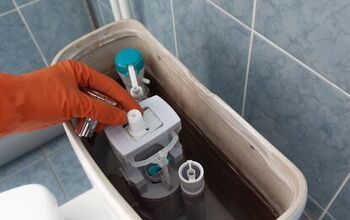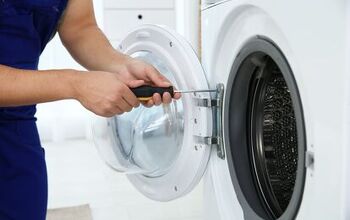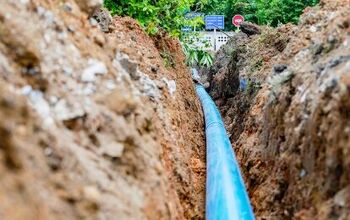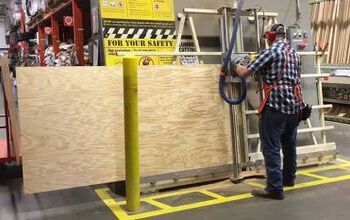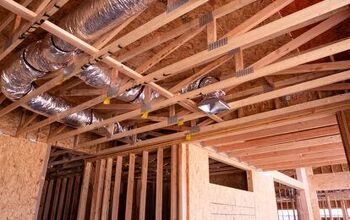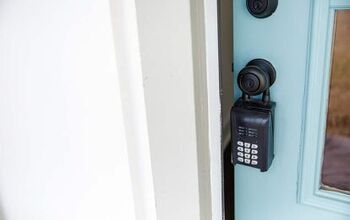Is The Landlord Responsible For Spoiled Food?

Laws, traditions, and common sense act as the guideposts that dictate and clarify many areas of the tenant-landlord relationship. Unfortunately, however, many areas of the tenant-landlord relationship aren’t so clearly defined.
One example of this is the responsibility of damages and loss resulting from an appliance failure such as a refrigerator dying. Is the landlord responsible for spoiled food? Is the tenant? These are the types of questions that can arise that need further clarification or mediation.
In most cases, the landlord is not held responsible for spoiled food. In the event of negligence or failure to fix the problem in a timely fashion, however, there are possible grounds to hold the landlord accountable. Additionally, proving landlord fault will require documentation and verifiable records.
Machines, electronics, and household fixtures and appliances break down and stop working. That is just a fact of life. What we do and how those issues get handled is where the issue of responsibility comes into play. Like most issues regarding the rental property, it is also a two-sided affair. That means that both parties will generally have some level of responsibility and expectations placed upon them.
What are the Tenant Obligations Regarding Appliances?
While there isn’t much that can generally be done to prevent the failure or breakdown of an appliance, there are certain implied expectations for the tenant. First and foremost, appliances such as the refrigerator are expected to be used properly. Any neglect of rental property and appliances can result in removing any responsibility on behalf of the landlord.
The next expectation for tenants is communicating any problems. That is also where documentation and keeping records are most vital. The tenant has a responsibility to inform the landlord of any problems with the rental property. That includes when a refrigerator stops working correctly or breaks down. Failure to promptly alert property management of any issues will also negate the landlord’s responsibility for any damages such as spoiled food.
What are the Landlord Obligations Regarding Appliances?
Within the lease contract are usually denoted items provided by the landlord, including appliances and other fixtures present at the time of move-in. While the tenant-landlord law does not require landlords to provide any specific household appliances, there are guidelines and expectations when they do.
One of the primary responsibilities of the landlord is to make necessary repairs. That means maintaining and keeping the property in a good state of repair. The tenant-landlord law also expects the landlord to respond and act in a reasonable and timely fashion.
Here is where the importance of prompt communication on behalf of the tenant can’t be overstated. And these are also the same reasons documentation is the most critical aspect when there is a dispute.
When Can the Landlord be Held Responsible for Spoiled Food?
When disputing with the landlord regarding issues like being responsible for spoiled food, one of two things will need to be established. One is to show and prove that the landlord did not respond or resolve the problem in a timely manner or fashion. That is also the most common complaint in these scenarios.
The other grounds for liability is negligence. In this case, the tenant will attempt to prove that the repairs were inadequate or failed to fix the problem. Then those actions will need to be shown as the cause for resulting loss and spoilage of food.
Helpful Documents and Records for Tenant-Landlord Disputes
There are a few options and resources both tenants and landlords can use to help prove their case. When a problem arises, the tenant is typically required to inform the landlord within a reasonable amount of time of the issue.
That is important as one of the first points of contention is the timeline from contact to the point of repair. That is also where documentation and record keeping take center stage.
Proof of contact
The premise of the argument will be based on whether the landlord failed to respond or fix the problem with a reasonable time frame. When contacting the landlord, certified mail is encouraged. This form of communication provides a recognized record of contact and helps to establish a timeline.
It is also important to keep records of any communication. That can include saved emails or even phone records to establish timelines and efforts to communicate with the landlord. If a problem is ongoing, it is also important to keep track of these situations and use verifiable documentation from the first onset of the issue.
Receipts of work and other records
In the case of negligent work, it won’t only be enough to show proof of contact and communication, but work records too. These will include copies of receipts for work done, parts, and other expenses.
Tenants may need to ask for a copy of these receipts as some landlords and maintenance personnel may not volunteer this information. Without evidence of work performed or parts bought, it is essentially impossible to prove a case of negligent or improper repairs.
How Do I File a Claim Against My Landlord?
If the dispute can’t be resolved, tenants have the right to file a claim against their landlord. In these circumstances, the most common and affordable route is to work through your local small claims court division. Small claims courts focus on financial disputes (cost of spoiled/lost food) versus forcing repairs or property upgrades.
That also makes small claims courts a good choice for tenants wanting recourse for what they believe is the landlord’s responsibility. Additionally, small claims courts don’t require hiring a lawyer. Depending on what state you are in, some small claims court divisions even prohibit the use of attorneys to litigate their cases.
Although it is most often a long shot, and more often than not, the landlord will not be held responsible, there are exceptions. If the dispute between a landlord and tenant becomes contentious enough to warrant involving the courts, it may also warrant consideration for moving to a more amicable situation.
Related Guides

We are a team of passionate homeowners, home improvement pros, and DIY enthusiasts who enjoy sharing home improvement, housekeeping, decorating, and more with other homeowners! Whether you're looking for a step-by-step guide on fixing an appliance or the cost of installing a fence, we've here to help.
More by Upgraded Home Team










![10 Best Electric Lawn Mowers - [2022 Reviews & Top Rated Models]](https://cdn-fastly.upgradedhome.com/media/2023/07/31/9070486/10-best-electric-lawn-mowers-2022-reviews-top-rated-models.jpg?size=350x220)
![10 Best Scroll Saws for 2022 [Ultimate Reviews & Buyer's Guide]](https://cdn-fastly.upgradedhome.com/media/2023/07/31/9070684/10-best-scroll-saws-for-2022-ultimate-reviews-buyer-s-guide.jpg?size=350x220)

